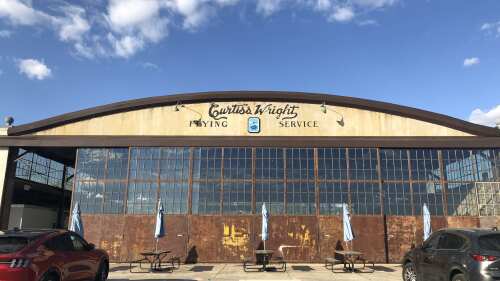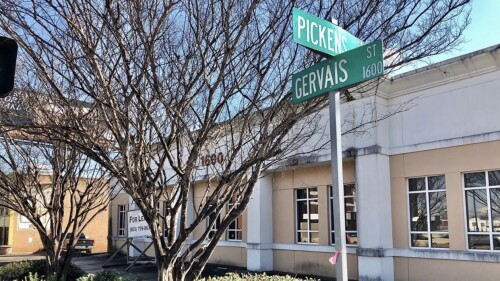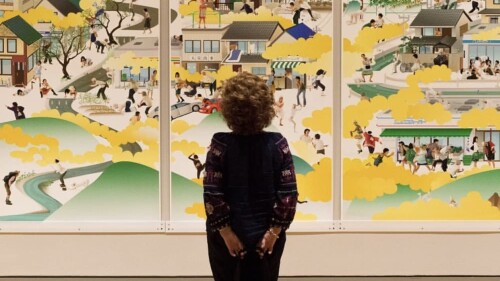Hey, Cola. Today we are going on a historical journey to take a deep dive into HBCUs, or Historically Black Colleges and Universities. We’re going all the way back to HBCUs’ first ties to South Carolina, so let’s get started.
What is an HBCU?
The term + acronym first came from the Higher Education Act of 1965, when federal funding was expanded to all universities and colleges. According to the Act, an HBCU is defined as “any historically black college or university that was established prior to 1964, whose principal mission was, and is, the education of Black Americans, and that is accredited by a nationally recognized accrediting agency or association determined by the Secretary of Education.” However, the first HBCU was established long before this act was passed.
Originally, HBCUs provided a liberal arts education and trained students for careers as teachers or ministers, while others prepared students for industrial or agricultural occupations.
The creation of these colleges and universities was important since many black students were denied admission to traditionally white colleges + universities. HBCUs also hold cultural significance as they provide a place where students can explore their cultural identity.
There are eight HBCUs in South Carolina; the first was Claflin University in 1869 followed one year later by Allen University and Benedict College, both of which are located right here in Columbia. The first campus of Allen University was actually named Payne Institute and originally located in Cokesbury, SC.
The African Methodist Episcopal Church worked to establish the educational institution to provide educational opportunities to formerly enslaved people in SC. 10 years after it was established, the school was renamed Allen University (After AME paster Richard Allen) + moved to Columbia to be more localized.
One of the most distinguished alumni was William David Chappelle, who led an all-black delegation to the White House following a controversial lynching. He is the great-grandfather of comedian Dave Chappelle, who has previously spoken at Allen University graduation ceremonies + been awarded a set of keys to the City of Columbia.
The other HBCU in Columbia is Benedict College. The school was founded in 1870 by Bathsheba A. Benedict of Pawtucket, Rhode Island, when she paid $13,000 to purchase the 80-acre plantation just outside of Columbia with the support of the American Baptist Home Mission Society. Benedict worked to create what was formerly known as Benedict Institute, where classes were originally held in a former enslavers house. The goal of the school was to provide an education to emancipated African Americans.
Benedict College’s first curriculum included the basics of reading, writing, spelling, arithmetic + religion. Later, the curriculum was developed to include more traditional college and trade classes, including carpentry, shoemaking, printing, and painting.
The South Carolina Legislature formally changed the name to Benedict College in 1894. Dr. Roslyn Clark Artis is the current President of Benedict College - the 14th President and first-female President in the school’s 150-year history.
Many notable alumni of Benedict College have roots in Columbia, but one of the most well-known is civil rights leader Modjeska Monteith Simkins. She was a member on the executive board of the Columbia chapter of the NAACP. The house she owned on Marion St. is listed on the National Register of Historic Places, and still serves as a meeting place for those working to improve the lives of the underrepresented.
Both campuses have helped play a role in civil rights movements in the capital city. According to Columbia 63, in 1960 approximately 50 students from Allen University + Benedict College organized Columbia’s first sit-in protests at the Woolworth + Kress department stores. The next day, 500 students gathered to protest community and school segregation and ~200 of these students marched to the business center of the city.
Fast forward to present day – HBCUs are still growing and making headlines in Columbia. This month, a protest for Black Lives Matter was held by members of the Seventh Episcopal District of the African Methodist Episcopal Church that began at Allen University and led to the State House.
In 2019, Benedict was named HBCU of the Year by HBCU Digest + received the ACE/Fidelity Investments Awards for Institutional Transformation, an award presented to colleges and universities that have creatively and innovatively adapted to challenges in higher education.
More recently, the newly elected coroner of Richland County, Naida Rutherford, is a graduate of Benedict College.
Today, there are over 100 HBCUs across the country for students to explore.











